Core Customer Experience Outsourcing Buyer Expectations | Market Insights™
Customer Experience Outsourcing
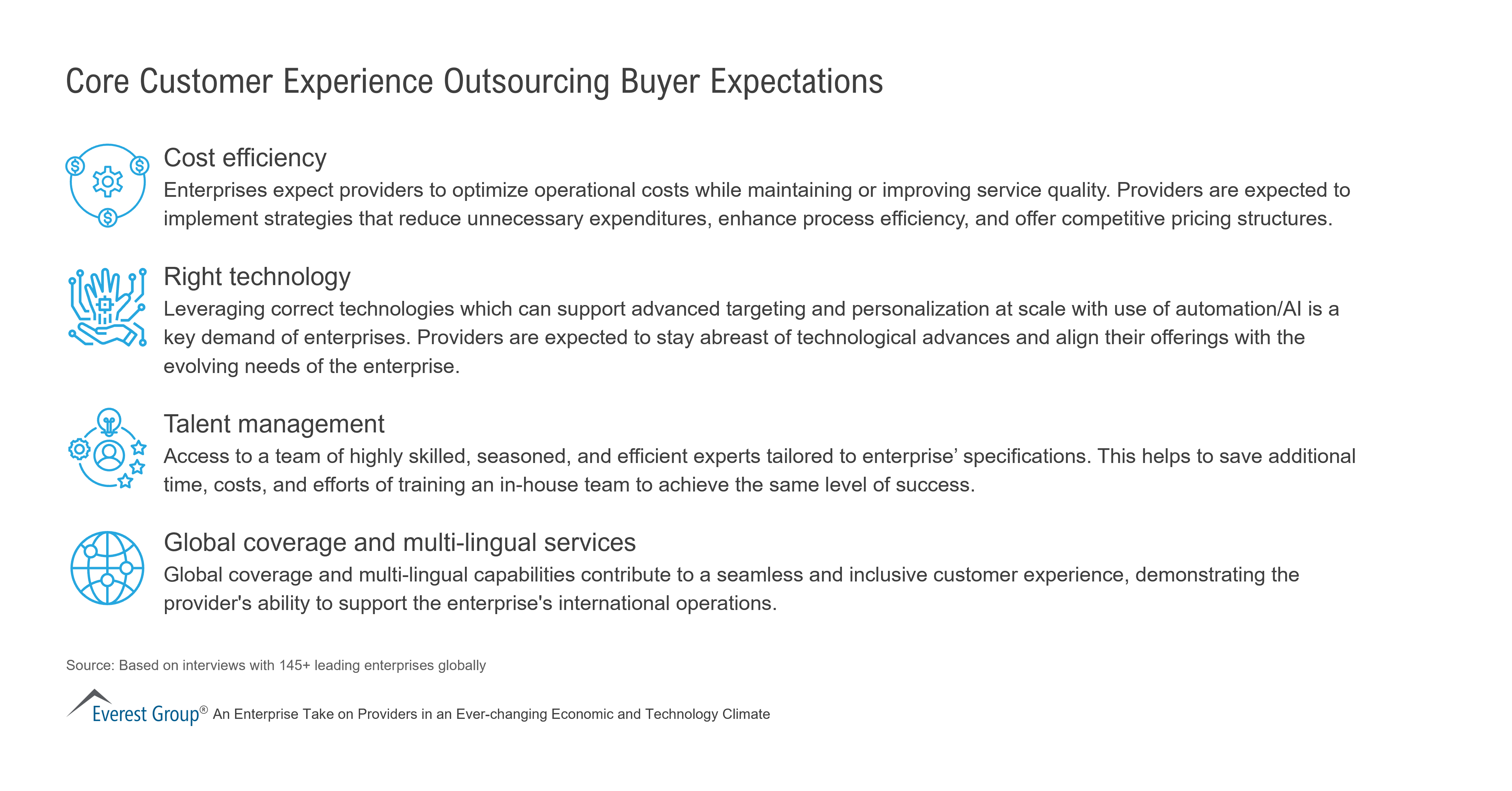
Customer Experience Outsourcing

View the event on LinkedIn, which was delivered live on Thursday, February 29, 2024.

Watch this interactive LinkedIn Live session to hear from Arte Merritt, Founder of Reconify, and Everest Group analysts, Shirley Hung and Sharang Sharma. We explored the roadmap for gen AI implementation, discuss what global businesses are considering in terms of deployment, address challenges, and examine whether companies should take on this journey independently or collaboratively.
During this event, we dove into questions such as:
 Where do you start with your gen AI journey for CXM?
Where do you start with your gen AI journey for CXM? What areas should you be looking at immediately for implementation?
What areas should you be looking at immediately for implementation? How do you co-innovate to minimize risks?
How do you co-innovate to minimize risks?Customer Experience

Data and Analytics
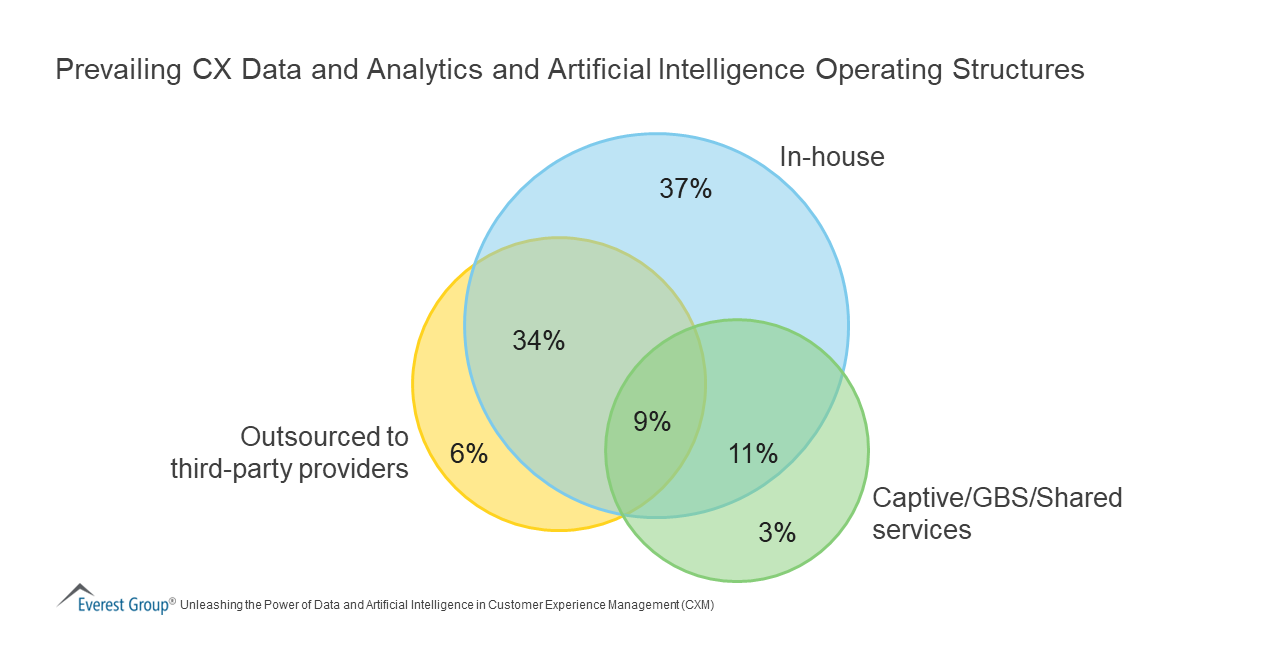
Data and Analytics
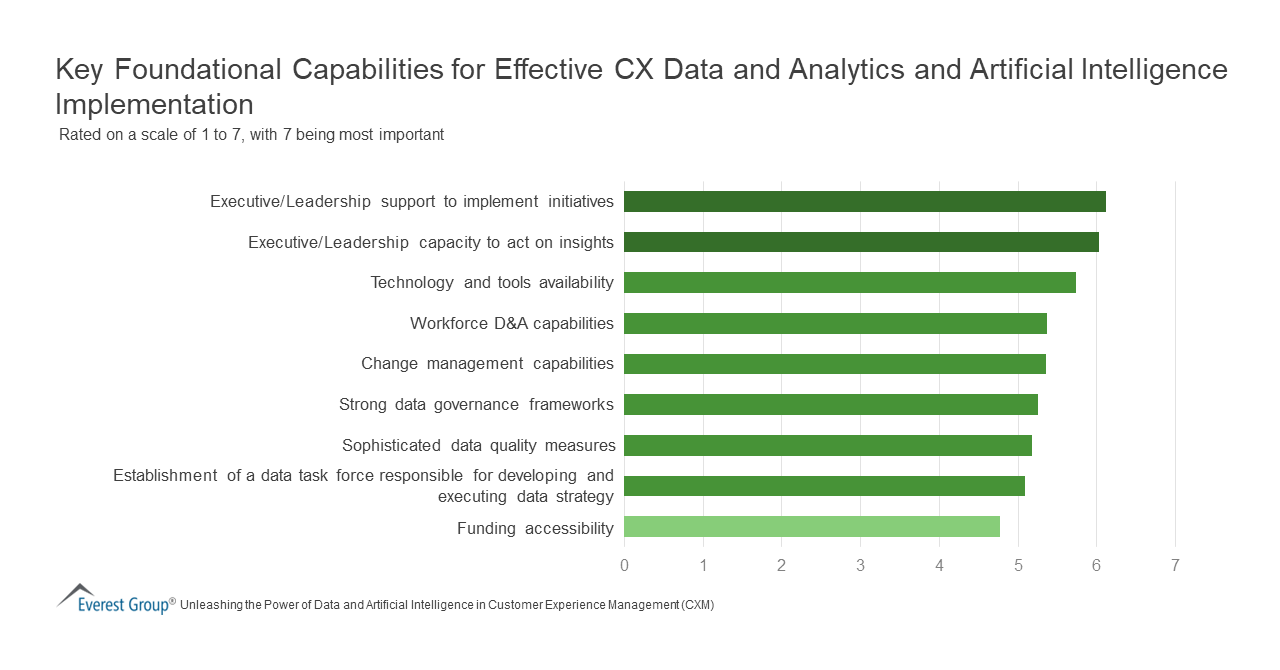
Customer Experience

Customer Experience Management
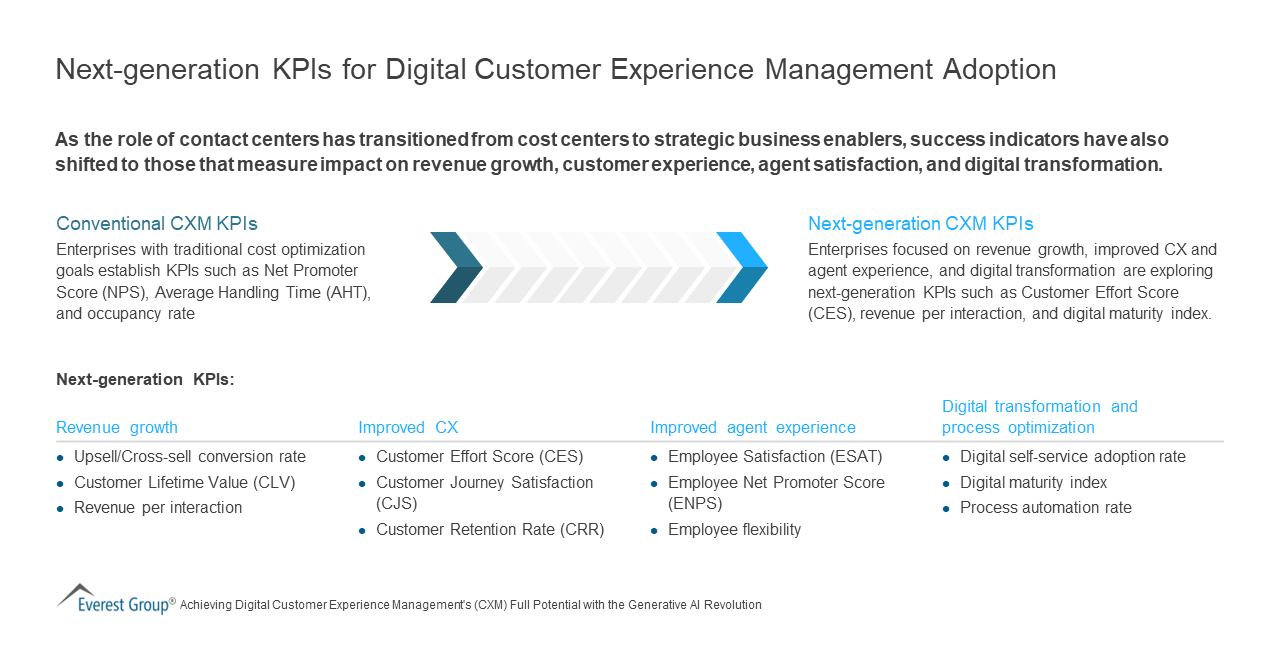
Customer Experience Management
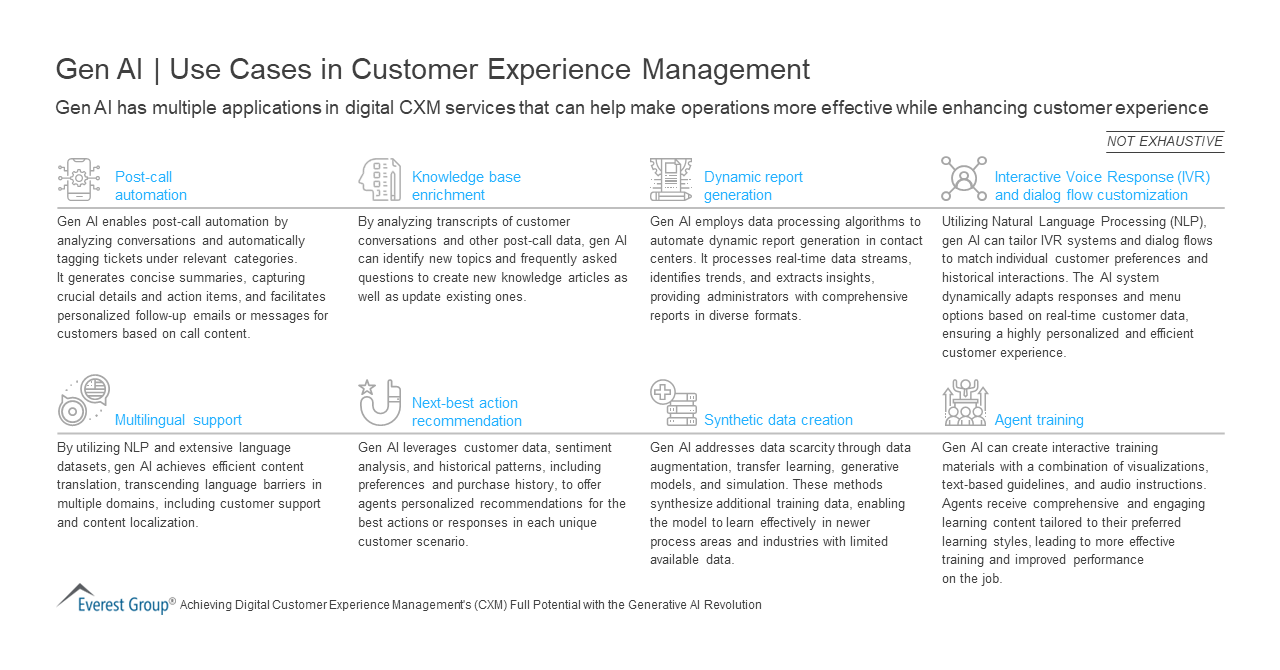
Customer Experience Management
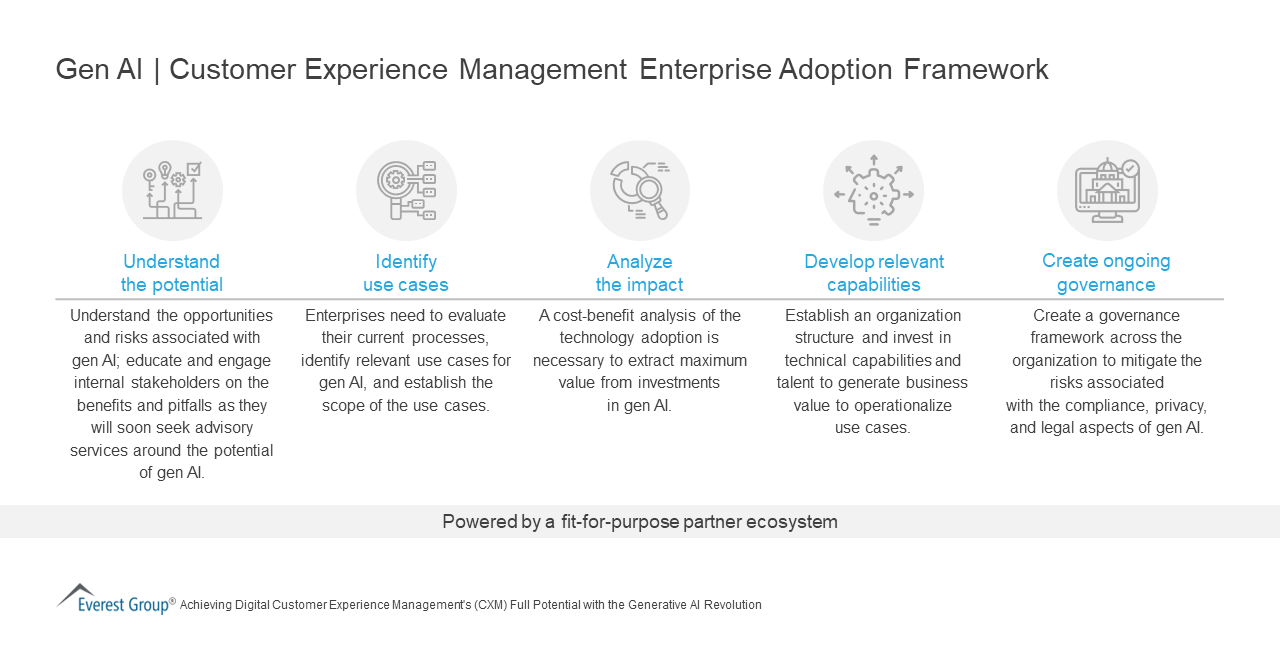

©2023 Everest Global, Inc. Privacy Notice Terms of Use Do Not Sell My Information
"*" indicates required fields